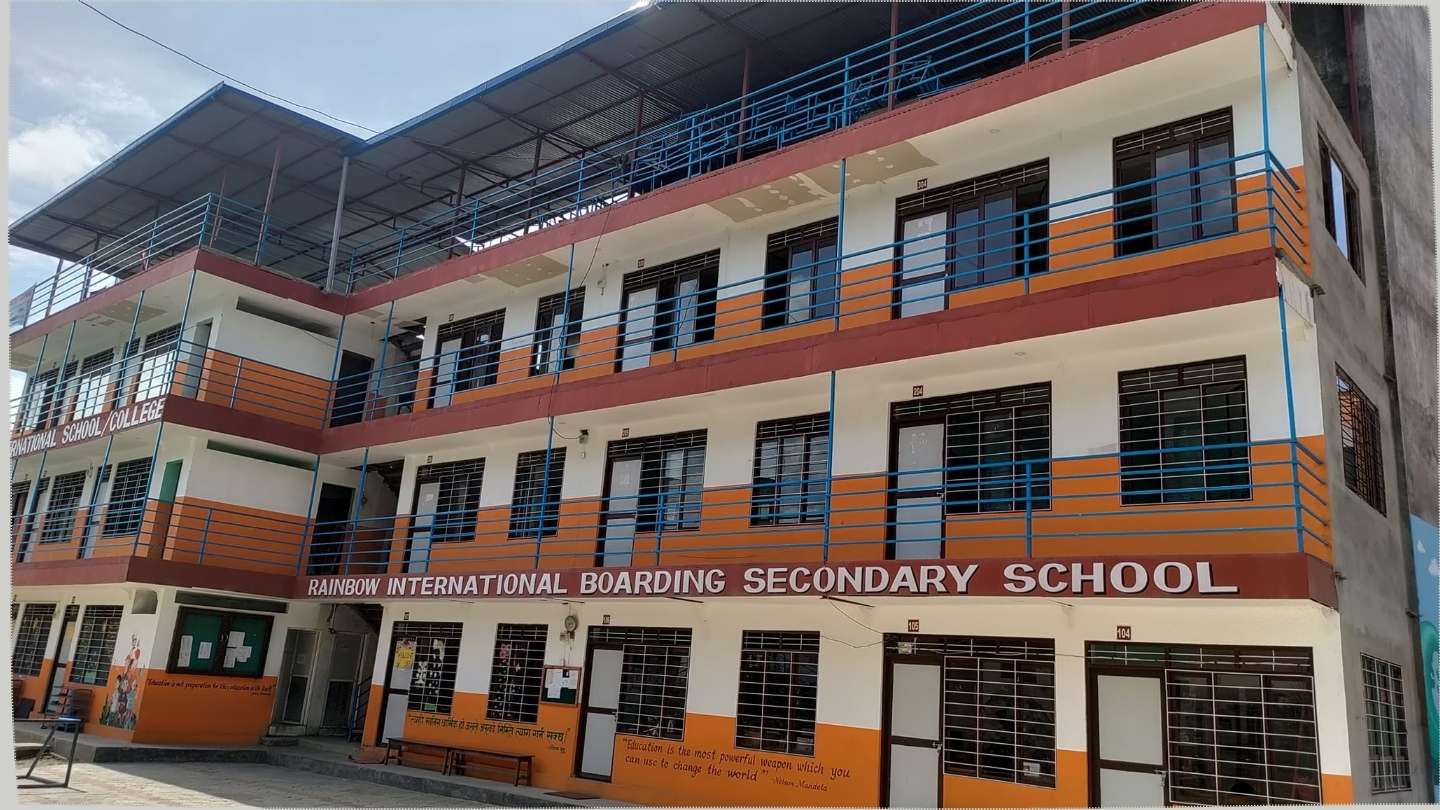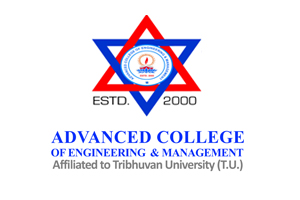Overview
Rainbow International College (RIC) in Dallu/Chhauni, Kathmandu, offers NEB +2 programs and Tribhuvan University–affiliated degrees, including BCA, BBS, BA, B.Ed., MBS, and M.Ed.
Introduction
RIC began in 2050 B.S. (1994 A.D.) as a secondary school and grew with steady demand from the local community. The college added +2 in 2004, bachelor’s programs in 2006, and master’s programs in 2009 under Tribhuvan University. The campus sits near the foothill of Swayambhu and serves students from across the Valley.
This profile is written for students, parents, teachers, planners, auditors, accreditation teams, NGOs/INGOs, and anyone seeking clear facts about programs, structure, and support services. It avoids promotional language and focuses on information you can apply right away.

Quick Highlights
-
Location: Dallu/Chhauni, Kathmandu (near Swayambhu)
-
Established: 2050 B.S. (1994 A.D.)
-
Affiliations: NEB for +2; Tribhuvan University for bachelor’s and master’s programs
-
Program Start Years: +2 (2004), Bachelor’s (2006), Master’s (2009)
-
Programs: +2 Science, Management, Humanities, Education; BCA, BBS, BA, B.Ed.; MBS, M.Ed.
-
Teaching Approach: Term-wise internal tests, projects/practicals, and board/university exams
-
Facilities: Library, computer labs, internet access, multimedia classrooms, sports courts, cafeteria, transport (as available)
-
Student Support: Counseling, extra English/computer classes (non-credit), field visits and excursions
-
Conduct: Attendance and uniform policies; clear rules on exam eligibility
Academic Programs Offered
+2 Programs (NEB)
Streams: Science, Management, Humanities, Education
Duration: 2 years
Science
-
Physical group: English, Nepali, Physics, Chemistry, Mathematics, Computer Science
-
Biological group: English, Nepali, Physics, Chemistry, Biology, Mathematics
-
Regular practicals and lab records support board preparation.
Management
-
Core subjects: Accountancy, Economics, Business Studies
-
Applied options: Computer Science, Business Mathematics
-
Focus on record-keeping, problem-solving, presentations, and short projects.
Humanities
-
Common areas: Sociology, Psychology, Population Studies, Mass Communication, Economics, and languages
-
Reading, writing, and field observation improve analysis and communication.
Education
-
Base courses: Foundations of education, pedagogy, health and physical education, population education
-
Suitable for students planning teacher training and B.Ed. progression.
Bachelor’s Programs (Tribhuvan University)
BCA (Bachelor of Computer Applications)
-
Course coverage: Programming, data structures, databases, web and mobile development, operating systems, networking, cloud basics, cyber law, and staged projects
-
Learning mode: Lab tasks, mini-projects, seminars, and internship exposure
-
Possible roles: Software developer, web/mobile developer, database support, systems/network support, junior data analyst
BBS (Bachelor of Business Studies)
-
Course coverage: Accounting, finance, economics, business law, taxation in Nepal, organizational behavior, marketing, research methods, entrepreneurship, and a capstone project
-
Learning mode: Case tasks, group work, field-linked assignments, and presentations
-
Possible roles: Accounts and finance, banking services, sales and marketing, HR and operations, entrepreneurship
BA (Bachelor of Arts)
-
Course coverage: Major/minor combinations across humanities and social sciences (e.g., English/Nepali, Sociology/Anthropology, Economics, Psychology, Political Science)
-
Learning mode: Term papers, surveys, presentations, and language practice
-
Possible roles: Media and communication, education support, social sector, entry-level public administration, content and editorial work
B.Ed. (Bachelor of Education)
-
Course coverage: Philosophy and psychology of education, curriculum and evaluation, classroom instruction, subject pedagogy, and school practice
-
Learning mode: Lesson planning, micro-teaching, observation, and teaching practice
-
Possible roles: School teaching (per major/minor and rules), academic coordination, education support services
Master’s Programs (Tribhuvan University)
MBS (Master of Business Studies)
-
Course coverage: Marketing management, managerial economics, statistics, organizational behavior, managerial communication, finance, HR, operations, business environment, international business, entrepreneurship, strategic management, specialization options, and dissertation
-
Possible roles: Middle-management tracks, financial analysis, HR management, brand and sales management, consulting, business development
M.Ed. (Master of Education)
-
Course coverage: Foundations, curriculum and practice, educational psychology, measurement and evaluation, research methods, specializations (e.g., English/Nepali Education, EPM, Mathematics Education, Health Education, Population Education), practicum, and thesis
-
Possible roles: Higher secondary or tertiary teaching (as per current rules), administration and leadership, curriculum development, education research, training and quality assurance
Admission Process
1) Check eligibility and documents
-
+2: SEE/SLC or equivalent as per NEB rules
-
Bachelor’s: +2 or equivalent; BCA follows TU entrance criteria
-
MBS: Bachelor’s in management/commerce or related field; CMAT (TU FoM) + interview and academic record
-
M.Ed.: Bachelor’s in Education (or relevant base) as per TU specialization rules
-
Identification: Citizenship or passport; foreign applicants add passport copies and equivalency where needed
2) Apply
-
Collect the form from the college or designated center during the intake window.
-
Attach certified copies of mark sheets, character certificates, photos, and ID.
3) Entrance and screening (where applicable)
-
BCA entrance per TU standards
-
MBS requires CMAT; shortlisting includes interview and past academic performance
-
Some programs may hold interviews or aptitude checks
4) Selection and offer
-
Selection considers entrance results (if any), interview, and earlier records.
-
Selected candidates complete fee and verification to confirm seats.
5) Enrollment and orientation
-
Submit originals for verification as instructed.
-
Attend orientation to understand rules, class schedules, and facility access.
Teaching Faculty and Learning Methodology
-
Subject specialists handle lectures, tutorials, and guided practice.
-
Assessment blends class tests, terminal exams, assignments, viva, and project reviews.
-
+2 Science uses regular lab sessions and records; BCA emphasizes coding labs and staged projects; BBS/BA/B.Ed. focus on cases, surveys, and teaching tasks; MBS/M.Ed. include seminars, research design, and dissertation/practicum.
-
Extra support (where offered): non-credit English and computer classes, remedial help, and counseling based on terminal exam diagnostics.
Infrastructure and Learning Facilities
-
Classrooms: Multimedia-equipped rooms suited for demonstrations and group tasks.
-
Library: Course texts, reference materials, periodicals, and quiet reading areas.
-
Computer labs: Networked systems for programming, productivity tasks, and controlled internet access.
-
Sports and recreation: Basketball, volleyball, and badminton spaces; activity calendar spread through the year.
-
Cafeteria: On-campus food service with standard hygiene practices.
-
Transport: College transport on selected routes where operational.
-
Field visits and excursions: Planned under course guidelines for applied learning.
Student Life and Campus Experience
-
Orientation helps new students settle quickly.
-
Counseling covers academic guidance and basic psychosocial support, with referrals if needed.
-
Clubs reflect student interest: literature, computing, debate, sports, and service.
-
Cultural programs align with the academic calendar to protect study time.
-
Peer learning through study circles and mentoring is encouraged.
Extracurricular Activities (ECA)
-
Sports: Inter-class games and periodic meets.
-
Arts and culture: Speech, essays, recitals, exhibitions led by interested students.
-
Academic events: Quizzes, project showcases, coding challenges, poster sessions, and lesson-plan expos.
-
Community engagement: Clean-up drives, awareness sessions, and observance days tied to health, education, or environment.
-
Visits and tours: College-approved trips that connect classroom theory with field observation.
Scholarships and Financial Support
-
Merit-based: Partial concessions linked to entrance performance, terminal results, or board scores (subject to policy and seats).
-
Need-based: Limited support for documented financial hardship.
-
ECA-linked: Recognition for achievements in sports or arts based on the college’s rules.
-
All concessions follow NEB/TU norms and current college policy; details appear in intake notices.
Achievements and Institutional Milestones
-
1994 (2050 B.S.): Founding as a secondary school
-
2004: Launch of +2 programs
-
2006: Start of bachelor’s programs (B.Ed., BA, BBS; BCA added under TU)
-
2009: Start of master’s programs (MBS, M.Ed. with specializations)
-
Ongoing: Expansion of counseling, library services, computing, and structured ECA
These dates show gradual growth from school-level teaching to postgraduate study within one campus community.
Why Choose This Institution?
-
One campus, multiple routes: +2 to master’s with NEB/TU curricula.
-
Range of disciplines: Science, Management, Humanities, Education, Computing, and Business.
-
Steady assessment: Three terminal exams per year help students track progress.
-
Practice and projects: Labs, teaching practice, case work, coding assignments, and dissertations as relevant.
-
Support services: Counseling and non-credit classes in English and computing where available.
-
Central location: Dallu/Chhauni site is reachable from many parts of the city.
Conclusion
Rainbow International College provides a clear academic pathway at secondary, bachelor’s, and master’s levels in central Kathmandu. Programs follow national curricula, combine classwork with practical tasks, and rely on regular internal assessment. Students find the essentials on campus—classrooms with multimedia, labs, library, sports space, and counseling—so they can focus on steady progress toward board and university exams.
FAQ
1) Where is the college located?
Dallu/Chhauni, Kathmandu, near Swayambhu, with road links to major city routes.
2) Which affiliations does the college hold?
NEB for +2; Tribhuvan University for bachelor’s and master’s programs.
3) Which +2 streams are offered?
Science, Management, Humanities, and Education.
4) Which bachelor’s programs are available?
BCA, BBS, BA, and B.Ed. under Tribhuvan University.
5) Which master’s programs are offered?
MBS and M.Ed., including specializations as per TU rules.
6) Is there an entrance test?
BCA follows TU entrance criteria. MBS requires CMAT by TU FoM. Some courses may add interviews or aptitude checks.
7) How do internal exams work?
Three terminal exams per academic year with assignments, practicals, viva, and project reviews. Meeting the minimum internal standard is needed for board/university exam eligibility.
8) What learning facilities are available?
Library, computer labs, multimedia classrooms, internet access, sports courts, cafeteria, and transport where operational.
9) Are extra support classes available?
Yes, non-credit English and computer classes are scheduled where feasible. Counseling and remedial help are also available.
10) What are the uniform and conduct rules?
Students follow a prescribed uniform and attendance policy, along with rules on punctuality and exam conduct.
11) Are scholarships available?
Merit-based, need-based, and ECA-linked concessions may be offered within policy limits. Criteria and deadlines appear in intake notices.
12) How do international students apply?
They submit the same documents as domestic applicants plus passport copies and required equivalency, following NEB/TU standards.
13) What is the teaching approach?
Lectures, tutorials, labs, and guided tasks. B.Ed./M.Ed. include school practice; MBS includes research and dissertation.
14) Are there field visits?
Yes, excursions and field observations are organized under course guidelines.
15) When did +2, bachelor’s, and master’s programs begin?
+2 (2004), bachelor’s (2006), master’s (2009).



















You need to login to comment.